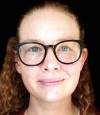Moderator: Ben Adida, VotingWorks
Panelists: Mike Judd, CDC COVID-19 Exposure Notification Initiative; Ali Lange, Google; Tiffany C. Li, Boston University School of Law; Marcel Salathé, EPFL
With the unprecedented COVID-19 pandemic came an unprecedented technology and public health collaboration: Google and Apple joined forces with public health departments to deploy a mechanism for notifying people of their possible exposure to the virus. How was this decision made? What were the tradeoffs? How is it going? If we had to do it all over again, what might we do differently? And most importantly, what does the future of app-based contact tracing look like? Join us for a lively discussion bringing together policy, epidemiology, legal, and public health experts on one of the most important cross-disciplinary collaborations of our time.

Ben Adida is the Executive Director of VotingWorks, the only non-profit election equipment vendor in the United States, with a mission is to rebuild citizen trust in US elections with secure and affordable voting equipment. Prior to VotingWorks, Ben led product engineering teams in security-centric fields: K-12 single sign-on at Clever, payments at Square, and identity at Mozilla. Ben was previously on the Faculty at Harvard Medical School, where he researched security and privacy of personal health data. Ben holds a PhD from MIT's Cryptography and Information Security group, where his work focused on election security.

Mike is the Agency Lead for the CDC’s COVID-19 Exposure Notification Initiative. He is passionate about the design and implementation of data products and initiatives at the interface of public health and computer science. Prior to his involvement in the agency’s pandemic response, he focused on epidemiologic analysis, data engineering, data science, and IT modernization through his roles as a Foodborne Disease Surveillance Epidemiologist, Informatics Unit Lead, and Surveillance and Informatics Advisor. He is a graduate of the Emory University Rollins School of Public Health.

Ali Lange is Public Policy Manager based in Google's California office. Her expertise is in data governance and privacy in product development. Ali previously worked at the Center for Democracy & Technology and the United States Senate.

Tiffany C. Li is a technology law professor at Boston University School of Law and a Fellow at Yale Law School’s Information Society Project. Li is an expert on privacy, artificial intelligence, and technology platform governance. She is regularly featured as a legal commentator in national and global news outlets, and her writing has appeared in popular publications including the Washington Post, the Atlantic, NBC News, and Slate. She also writes a recurring column on technology and privacy for MSNBC Daily. Li has a J.D. from Georgetown Law and a B.A. from UCLA.

Marcel Salathé is a digital epidemiologist working at the interface of health and computer science. He is an Associate Professor at EPFL where he heads the Digital Epidemiology Lab at the Campus Biotech in Geneva. In 2016, he founded the EPFL Extension School, whose mission is to provide high quality online education in digital technology, and where he is the Academic Director. He is the president of the steering committee of the national research program on COVID-19, a member of the Swiss National COVID-19 Science Taskforce where he led the "Digital Epidemiology" expert group, and of the DP-3T group whose work influenced the Apple & Google Exposure Notification API which powers decentralized digital contact tracing apps around the world.
Marcel spent a few years in the tech industry as web application developer. He was part of the renowned Y Combinator startup accelerator’s class of Winter 2014.

author = {Ben Adida and Mike Judd and Ali Lange and Tiffany C. Li and Marcel Salath{\'e}},
title = {Contact Tracing},
year = {2021},
publisher = {USENIX Association},
month = feb
}